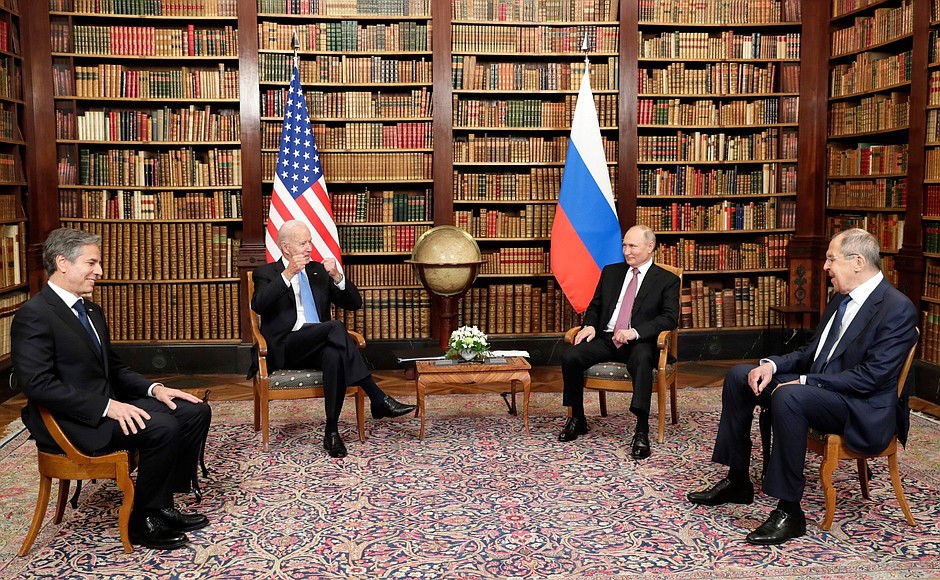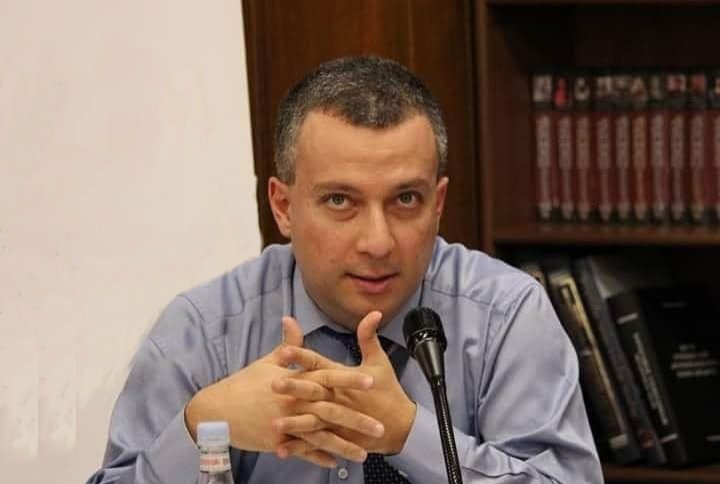
In recent years Russia-West relations reached their lowest point since the end of the Cold War. The Ukraine crisis, Russian military involvement in Syria, the alleged Russian interference in the 2016 US presidential elections, the assassination attempt of Sergei Skripal; this is not the complete list of the West’s grievances towards Russia. The Kremlin has its list – NATO enlargement, military actions against the former Yugoslavia, incursion to Iraq and Libya without UN Security Council resolutions, support to the alleged coup in Ukraine in 2014, interference into Russian internal affairs to execute regime change and bring a puppet government into power. It seemed that relations could not deteriorate further. However, since December 2021, Russia-US and Russia-NATO tensions have increased significantly. Russia prepared two agreements with the US and NATO, demanding to revise the post-Cold War European security architecture. Russia demands to stop NATO enlargement, scale back NATO military infrastructure in the territories of the new NATO members, and significantly restrain NATO engagement with former Soviet Republics.
Russia’s demands triggered a set of high-level negotiations: direct phone conversations between President Putin and Biden, discussions at Russia-NATO council and OSCE, and talks between US Secretary of State Antony Blinken and Russian Foreign Minister Sergey Lavrov. The US and NATO rejected the primary demands of Russia, calling them non-starters, simultaneously expressing their willingness to continue negotiations. In parallel to these negotiations, a real drama evolved around Ukraine. The US claims that Russia is preparing for a large-scale invasion of Ukraine and even decided to evacuate the family members of the US embassy in Kyiv. The US, UK and some European countries started to supply Ukraine with lethal weapons, while Russia claims Ukraine is preparing a military provocation along the contact line in Donbas. The Kremlin rejects all notions about Russia’s plans to invade Ukraine, hinting at some unspecified military-technical response if Russia’s concerns are not met.
As another tool of deterrence, the West threatens Russia to impose new, much tougher sanctions if Russia decides to launch a military attack on Ukraine. The international media and expert community actively discuss the possibility of cutting Russian banks from SWIFT, stopping buying oil and gas from Russia, and banning the sale of semiconductors to Russia. Several draft laws have been introduced in the US House of Representatives and Senate targeting Russia, including sanctions against President Putin. The Kremlin claims that any such move will mean “complete rupture of relations,” while some experts and pundits actively circulate the term “Russia-West decoupling” as a potential outcome of the current crisis.
It is challenging to assess the possible developments even in short-term perspectives. Negotiations will continue, as all understand that any agreement on changes of the European security architecture cannot be reached within weeks. Meanwhile, Russia will not wait for years to receive a final answer. The recent tensions are underway under the background of the general transformation of the post-cold war world order. American undisputed hegemony is over, and the world slowly moves towards a new, multipolar global order with multiple centers of powers competing and cooperating with each other. The US political elite understands that America’s rival is China in the long-term perspective, not Russia. Even if Russia is one of the poles in the emerging global order, it will be less influential than China.
While great powers flex their muscles for the upcoming battles over the nature of the world order, the medium and small powers seek to assess the potential implications of Russia-West decoupling. In this context, the South Caucasus is an interesting case. Being part of the Soviet Union and after 1991 perceived by Russia as a legitimate zone of its special interests, the region has become a flashpoint for regional rivalries. In the first two decades after the collapse of the Soviet Union, the security architecture was relatively straightforward. The US supported the Turkey-Georgia-Azerbaijan partnership versus the Russia-Armenia alliance, while Iran was de jure neutral but de facto was supporting Russia-Armenia. Despite being fully anchored in the Russian sphere of influence, Armenia developed modest cooperation with the West, signed IPAPs with NATO, joined the European Union (EU) Eastern Partnership initiative and signed the Comprehensive and Enhanced Partnership Agreement (CEPA) with the EU in 2017. Azerbaijan pursued a balanced foreign policy, developing partnerships with Turkey and Russia and launching energy cooperation with the West.
Regional security architecture started to change in 2016. The key driver was Turkey’s strategy to transform itself into the independent regional player and bid farewell to its position as the sole provider of US interests in the Middle East, South Caucasus, Black Sea region and Western Balkans. Russia sought to use this momentum and pull Turkey away from the US and NATO as much as possible, having a clear understanding that Turkey will not leave NATO. As a result of that understanding between Russia and Turkey and the strategic blunders made by the Armenian governments of former President Serzh Sargsyan and incumbent PM Nikol Pashinyan, Russia allowed Azerbaijan and Turkey to start a joint war against the unrecognized Nagorno Karabakh Republic and change the regional status quo. After the signing of the November 10, 2020 trilateral statement, Russia and Turkey continue to steer the developments in the region, pushing for restoration of communications, the start of Armenia-Azerbaijan border delimitation and demarcation, and normalization between Armenia and Turkey. All external players in the region – Russia, Turkey, Iran, the US, and the EU – are interested in a stable South Caucasus.
However, if the current Russia-West crisis ends with “complete decoupling,” it will shake the post-2020 Karabakh status quo. Azerbaijan will be forced to make a final decision. Is it part of the emerging Russian pole or not? Simultaneously, Turkey will not be able to continue its current “cooperative competition” with Russia. Georgia will not join the “Russian pole” as an absolute majority of Georgian society views Russia as an enemy and occupying force. Suppose Armenia and Azerbaijan become part of the Russian pole. It could be in the form of a more integrated Eurasian Economic Union or the establishment of some Union state. In that case, Armenia-Azerbaijan relations and the Karabakh conflict will become purely Russian domestic problems. Armenia-Turkey, Armenia-Georgia and Azerbaijan-Georgia borders may be transformed into the new dividing line between “Russian and Western poles,” while Iran will support Russia. It will mean the continuation of the Armenia-Azerbaijan normalization process, but Armenia-Turkey negotiations may be stalled. If Azerbaijan rejects the Russian offer and seeks to anchor itself in the Western pole, the Armenia-Azerbaijan border and the current contact line in Nagorno Karabakh may become the new dividing line between Russian and Western poles. In this scenario, both Armenia-Azerbaijan and Armenia-Turkey processes may be stalled, while Russia may use Armenia and Nagorno Karabakh as tools to pressure or punish Azerbaijan.



Interesting analysis. I’ve been concerned that if Russia invades Ukraine, Azerbaijan will attempt to take all of Karabakh / some other significant land grab while assuming Russia is distracted / stretched ever thinner.
Russia trying to be the most hated state in existance. The world has settled and moved on but Russia is still a backwards hellhole claiming other independant states as it’s own. Either that or installs a puppet leader that keeps the country in the 3rd world. Putin with his toilet paper salary is very rich. I guess he sells newspapers on the side. Short stop thinks he will live forever. Never forget Putin trolls were all over the internet when that informant in the UK was poisoned. All with western typical names like John, Jack, Anderson while their watch history is all Pravda, RT, Sputnik, etc. They all go quiet once deals are made. Same crap over and over about Putin being a 10D chess player and the sexiest man alive, Russia being a superior state to any other nation, other stupid cut and paste cringe memes and non sense.
The events, past, present and future show, why a smart strategic foreign policy based on realpolitik with clear long-term objectives is absolutely vital, and is as important as having a modern, professional and well-equipped military, especially for a vulnerable and landlocked country like Armenia. Neglecting both, has proven disastrous for Armenia, with the tragic outcomes in the last war. In this dangerous neighborhood surrounded by hostile predatory powers, it is a matter of survival for Armenia, which no one, especially those who rule the country and who in turn are chosen by the people, cannot afford to ignore and neglect. The price for not doing so, is extremely high.
What strategic blunders did Serzh Sarkissian do?